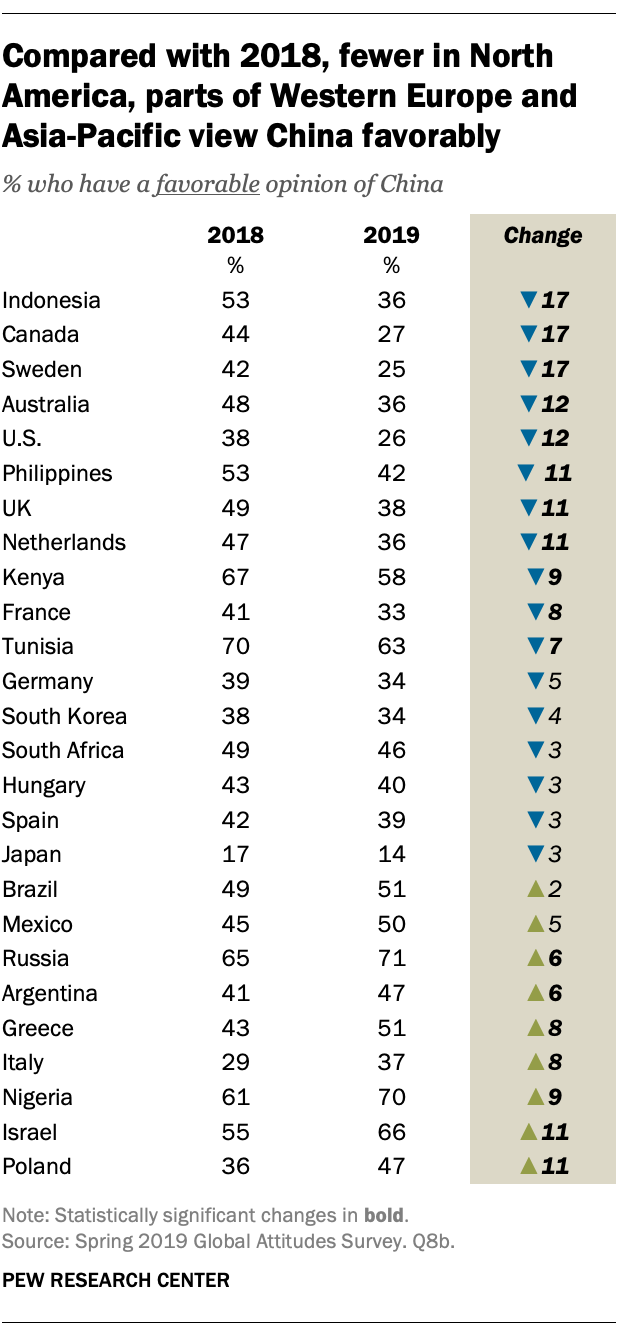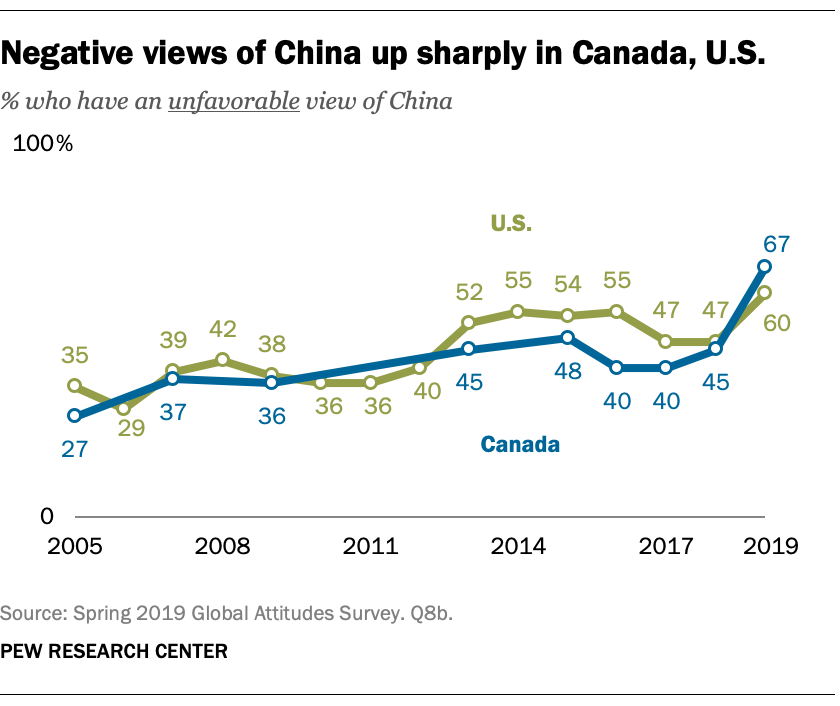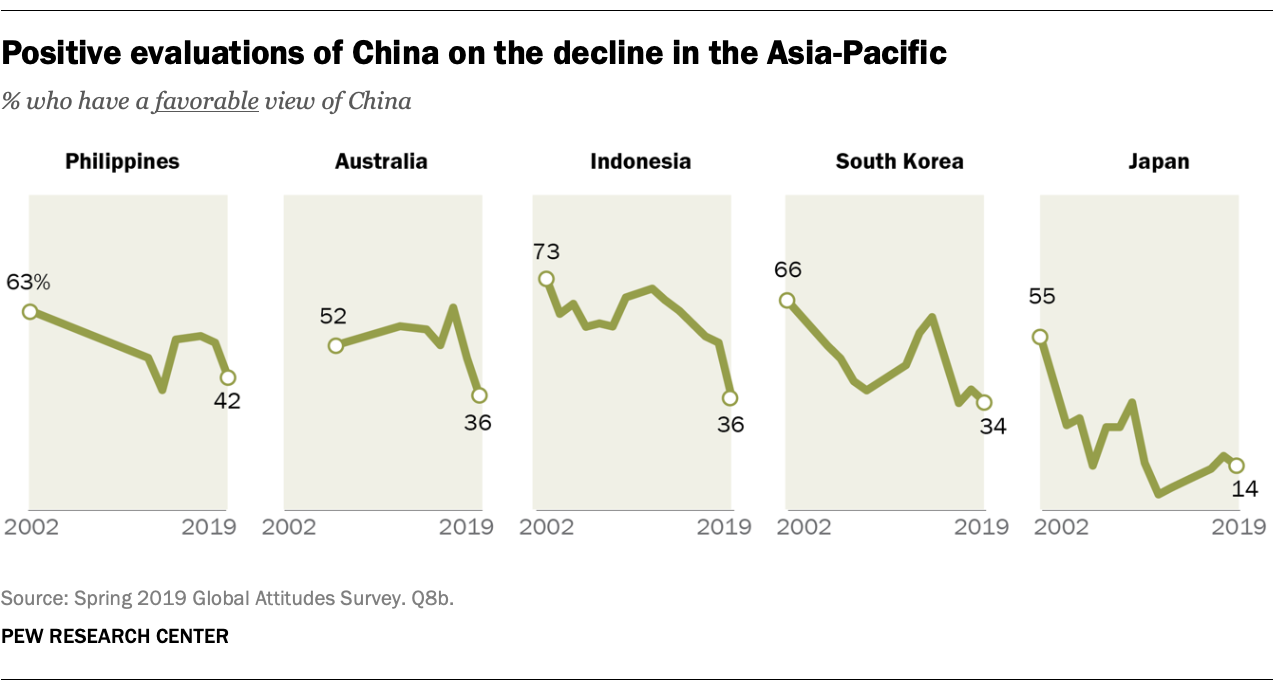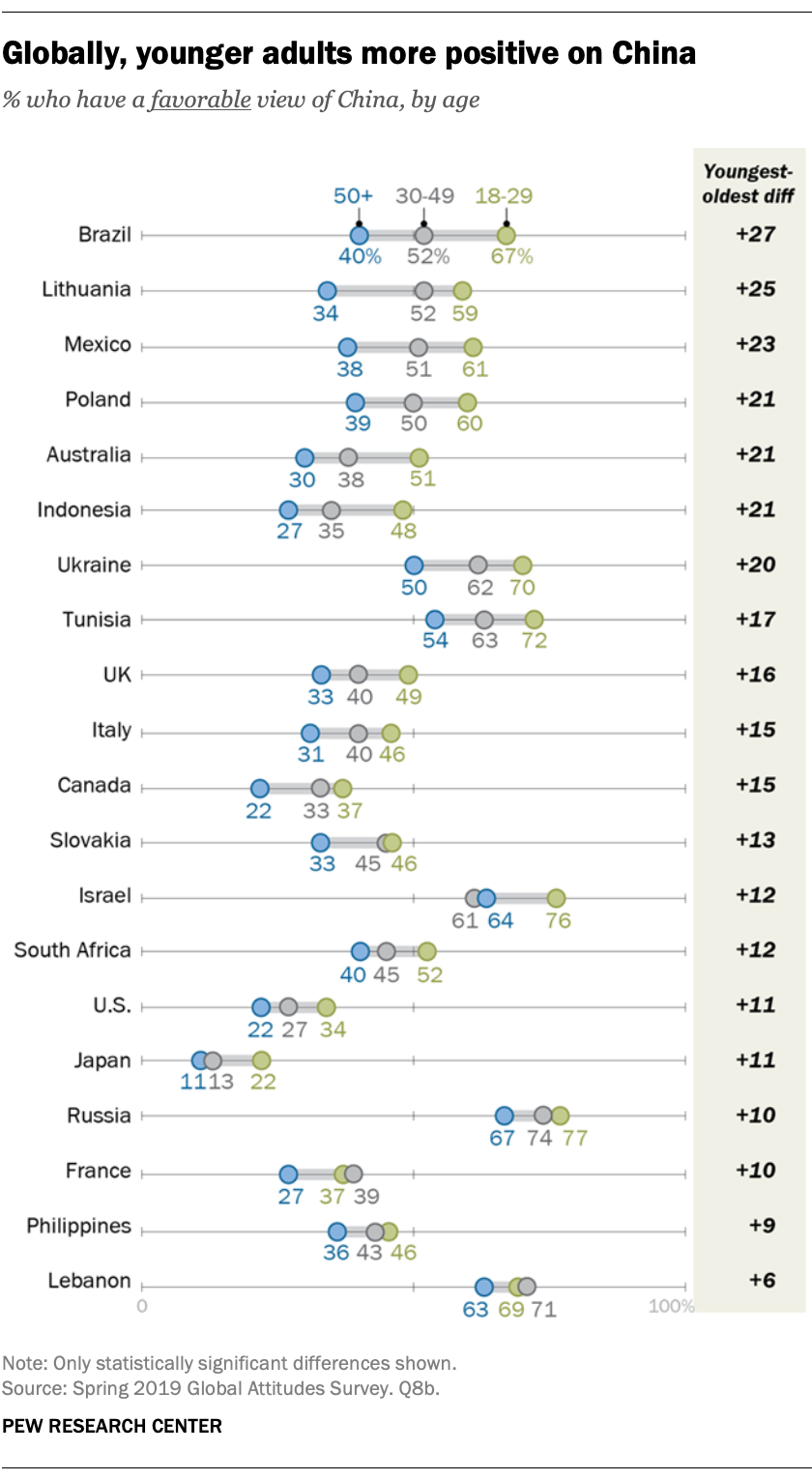As the People’s Republic of China celebrates the 70th anniversary of its founding on Oct. 1, it gets mixed reviews from people around the world, according to Pew Research Center’s latest Global Attitudes Survey. A median of 41% across the 32 countries surveyed have a favorable opinion of China, compared with a median of 37% who have an unfavorable opinion.
And, while majorities in most countries agree China’s influence on the world stage has grown markedly, this has not necessarily translated into favorable views of the country, according to the survey of 34,904 people conducted May 13 to Aug. 29, 2019.
Opinion of China across most of Western Europe is, on balance, negative. While 51% in Greece have a positive view of China, pluralities or majorities in Western European countries have an unfavorable view, ranging from 53% in Spain to 70% in Sweden. The share of people who evaluate China positively has also dropped since 2018 by double-digits in nearly half of the Western European countries surveyed, including Sweden (down 17 percentage points), the Netherlands (-11 points) and the UK (-11). Only in Greece and Italy has opinion improved.
Central and Eastern Europeans are somewhat more divided in their assessments. More Bulgarians, Poles and Lithuanians have favorable than unfavorable views of China, and Hungarians are nearly evenly divided. Conversely, a plurality of Slovaks and a majority of Czechs have unfavorable views of China.
Negative views of China predominate in both the United States and Canada, where 60% and 67% respectively see the country unfavorably. In  both countries, this is the highest unfavorable opinion of China recorded in the Center’s polling history. (For more on U.S. opinion, see “U.S. Views of China Turn Sharply Negative Amid Trade Tensions.”) It also reflects the largest year-on-year change in either country. For example, in Canada, unfavorable opinion increased 22 points in the wake of the high-profile arrest of technology company Huawei’s chief financial officer and the ensuing Canadian-Chinese trade conflict.
both countries, this is the highest unfavorable opinion of China recorded in the Center’s polling history. (For more on U.S. opinion, see “U.S. Views of China Turn Sharply Negative Amid Trade Tensions.”) It also reflects the largest year-on-year change in either country. For example, in Canada, unfavorable opinion increased 22 points in the wake of the high-profile arrest of technology company Huawei’s chief financial officer and the ensuing Canadian-Chinese trade conflict.
China also receives unfavorable marks from most of its neighbors in the Asia-Pacific region. In Japan, 85% say they have an unfavorable opinion of

China – the most negative among all countries surveyed. More than half in South Korea (63%), Australia (57%) and the Philippines (54%) share this sentiment. Opinion of China has also fallen across the region over the course of Pew Research Center’s polling and is now hovering at or near historic lows in each of the countries surveyed. In Indonesia, the change over the past year has been particularly stark, falling 17 percentage points.
Russians stand out for having the most positive view of China across all countries surveyed (71% favorable). A majority in Ukraine, too, share these views (57%).
Majorities or pluralities in each of the Middle Eastern, Latin American and sub-Saharan African countries surveyed have a favorable view of China – ranging from a low of 46% in South Africa to a high of 70% in Nigeria.
Younger people tend to have a more positive stance on China across most of the countries surveyed. In 20 countries, adults ages 18 to 29 have more favorable views than those ages 50 and older. In Brazil, for example, two-thirds (67%) of younger adults have a favorable view of China, while just 40% of older adults share that opinion. Large age gaps also exist in Lithuania (where younger adults’ views are 25 points more favorable), Mexico (+23 points), Indonesia (+21), Australia (+21), Poland (+21) and Ukraine (+20).
However, in many countries, those 50 and older are also less likely to offer any opinion of China. About a third or more of older adults in Indonesia, Ukraine, Argentina, Mexico, Tunisia and Brazil give no opinion when it comes to China.
Note: See full topline results and methodology.
To view original report, click here


